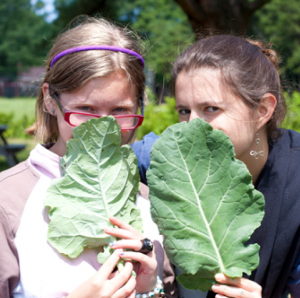Vermont Afterschool is proud to be part of the Million Girls Moonshot initiative, working to inspire and prepare the next generation of innovators by engaging one million more girls in STEM learning opportunities through OST programs over the next five years. The Million Girls Moonshot is an initiative of the STEM Next Opportunity Fund. The Million Girls Moonshot seeks to re-imagine who can engineer, who can build, who can make. See below for some information and resources that can help advance this goal!
If you are using these resources please fill out this quick survey so Vermont Afterschool can see how these resources are being distributed. Thank you!
This month, MGM celebrates Earth Day and Environmental Education Week! Now is the time for all of us—education, business, and civic leaders—to take action on climate in order to preserve and protect our health, our families, and our livelihoods. To do this, we need to inspire the next generation of creative thinkers and problem solvers to design the solutions that will get us there. This Earth Day, let us act boldly, innovate broadly, and implement equitably. It is going to take all of us!
Earth Day
Earth Day Math: This 8-minute YouTube video has a short trivia game about our planet. It’s a great way to introduce Earth Day using math facts.
IF/THEN Collection for Earth Day
These assets feature IF/THEN Ambassador and forest ecologist, Lindsey Rustad:
- Ambassador Profile of Lindsey Rustad
- Draw Her Life of Lindsey Rustad
- Salt Crystal Tree Activity with Lindsey Rustad
These assets feature IF/THEN Ambassador and carnivore ecologist, Dr. Rae Wynn-Grant:
- Long profile of Dr. Rae Wynn-Grant
- On-the-job video of Dr. Rae Wynn-Grant
- Field Shot 3 of Dr. Rae Wynn-Grant
- Field Shot 10 of Dr. Rae Wynn-Grant
These assets feature IF/THEN Ambassador and climate scientist, Dr. Victoria Herrmann:
- Long profile of Dr. Victoria Herrmann
- STEM Journey Video of Dr. Victoria Herrmann
Transformative Practices
Share the following resources about transformative practices with partners and programs in your state. Use them to create professional development for afterschool programs and educators in your state.
Equity and Inclusion
- Toolkit: A Pathway to Equitable Math Instruction Toolkit | SABES – This resource was created to help math teachers develop an anti-racist, culturally responsive math practice. It offers “an integrated approach to mathematics that centers Black, Latinx, and Multilingual students in grades 6-8, addresses barriers to math equity, and aligns instruction to grade-level priority standards.”
- Article: Equity in Math Class: 5 Tips for Teachers – WeAreTeachers – Ways to Build Equity into Your Math Lessons discusses how equity and social justice play a critical role in math instruction.
Engineering Mindsets – Math
- Activity Toolkit: Growing Math – Provides ready-to-roll-out lessons and games combining math, agricultural science and Indigenous history and culture that can be easily used in classrooms, via hybrid models or through distance learning. The project will provide resources, curriculum, training and tech support to teachers and students in Grades 3-8 at schools in six states: Arizona, Minnesota, New Mexico, North Dakota, Oregon and South Dakota. For schools in the region, all participation and resources are supported through USDA funds.
- Article: Critical Issue: Remembering the Child: On Equity and Inclusion in Mathematics and Science Classrooms – The North Central Regional Education Laboratory (NCREL) addresses equity and inclusion in STEM classrooms as a critical issue in a paper that includes six effective practices for equity.
Activities for Programs
- Math and Climate Change: Teach about the climate by understanding the math. The activity plans on this website has a variety of k-12 activities that teach and encourage youth to care for the planet.
- Piles of Paper: In this activity, learners keep track of how much paper the group uses in a week. Build awareness of paper waste, while strengthening measurement and estimation skills. Age range 4-14.
- We’re on the Rise! : In this activity, learners build a simple aneroid barometer to learn about changes in barometric pressure and weather forecasting.
- Reason for the Seasons: This activity has a strong math element as learners will use a protractor to estimate the angle of the sun in a mode age range 8-14.
- Sustainable Grazing: Using math and problem solving skills in this activity, they will learn how many animals can live on their imaginary 100 acre ranch. Age range 8-18.

